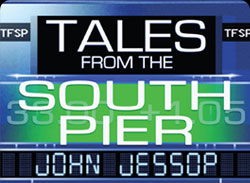The film version of that monumental stage hit Les Miserables didn’t really stand a
chance with me. I’m just not that keen
on sung-through musicals, and this one is no exception. To add injury to my backside to the insult
inflicted on my ears, Tom Hooper’s screen adaptation drags on for a grueling
2-1/2 hours – without the intermission that offered some relief in the live
theatre performance.
The inclusion of all the musical numbers from the
stage show means that the film sticks doggedly to the stage original, so
aficionados won’t be disappointed in that respect. (For reasons of space, and because you
probably won’t be reading this unless you know it already, I won’t bother to
outline the story.)
Does the film, regardless of what one thinks of Claude-Michel
Schonberg’s music (not much, in my case) stack up as good cinema?
I wasn’t greatly impressed. It isn’t a terrible film, but I can’t say it’s
brilliant, or even appealing as entertainment.
I can say that it’s big and noisy and constantly in your face. Presumably the producers decided that meeting
the expectations of a prospective audience of 60 million – the number estimated
to have seen the stage show in 21 different languages – constituted a grave
responsibility to produce something flashy.
That still doesn’t explain why they felt obliged to open the film with a
spectacular scene involving hundreds of slaves hauling a ship into
dry-dock. It must have cost millions but
adds nothing to the story.
The 1832 revolution may have been an epochal event –
and movie moguls can’t resist milking a Big Event for special effects – but a more
modestly-scaled film might have enhanced the characters without detracting from
the story.
Even then, Les
Miserables wouldn’t have been much fun, jollity being the last thing you’d
expect from such a title. At the start
of its long run in the theatre – when it was widely panned by the critics – one
reviewer famously called it ‘The Glums’.
It’s plain to see what he meant.
The whole film is rather dimly lit, presumably to reflect
the grim subject matter, and stage-bound, presumably a nod of recognition to
the live version. Aside from a few computer-generated
images of the Paris skyline, not until the
street battle scenes do we finally emerge into sunlight (to the grounds of the Greenwich Naval Museum,
the credits inform us).
For the solo musical numbers, Hooper for the most part
uses extreme close-ups, and in once instance, for Anne Hathaway’s show-stopper,
‘I Dreamed a Dream’, one long uninterrupted take, in which the camera lingers
on her ravaged face for nearly four minutes.
I kept looking for the hole left
by the tooth she’d just had extracted for a fee. Obviously it wasn’t an incisor.
To say the film is powerful – which is the consensus
of the reviews I’ve read – is more damnation than praise. It’s far too powerful. The intensity of the story is forced on us
rather than allowed to emerge organically from the material. Just about every scene is loud, shocking, or tear-jerkingly
poignant, evidently calculated to jolt the audience out of whatever comfort
zone it may be in danger of settling into.
After only half-an-hour of this sustained anguish I longed for some
respite – a quiet, reflective pause in the action. But I knew there would be no let-up. How could there be when there’s no spoken
dialogue, and in every scene someone had to be belting out a number expressing
rage or despair?
There are a couple of attempted comic interludes,
involving Sacha Baron Cohen and Helena Bonham Carter as a pair of
money-grasping innkeepers, but the routines fall a bit flat. “Okay, let’s get back to the misery,” Hooper
seems to be saying.
For the record, the leading cast members strive
mightily. None of the stars sings
terribly well, but neither do they embarrass themselves. (The film bravely departs from custom by
presenting the songs as they were performed during shooting, rather than
pre-recorded and then lip-synched.)
Hathaway, as Cosette’s tragic mother Fantine, is
excellent, but dies all too soon. Hugh
Jackman, as Jean Valjean, Cosette’s hunted guardian, deserves an Oscar for
endurance if for nothing else. Russell
Crowe lacks intensity and at times looked uncomfortable as the pursuing
policeman Javert – which is odd because his persona, off-screen and on, seems tailor-made
for the role. Amanda Seyfried as the
older Cosette, and Eddie Redmayne as her lover Marius respectively, are a passionless
pair, bordering on insipid. At least
they get to survive.
Best of all, I think, is Samantha Barks, a refugee
from the London
stage, as the unrequited Eponine.
If you’re a paid-up Les Miz fan, you’ll love it. I’m not, and I didn’t.
—–


Be First to Comment